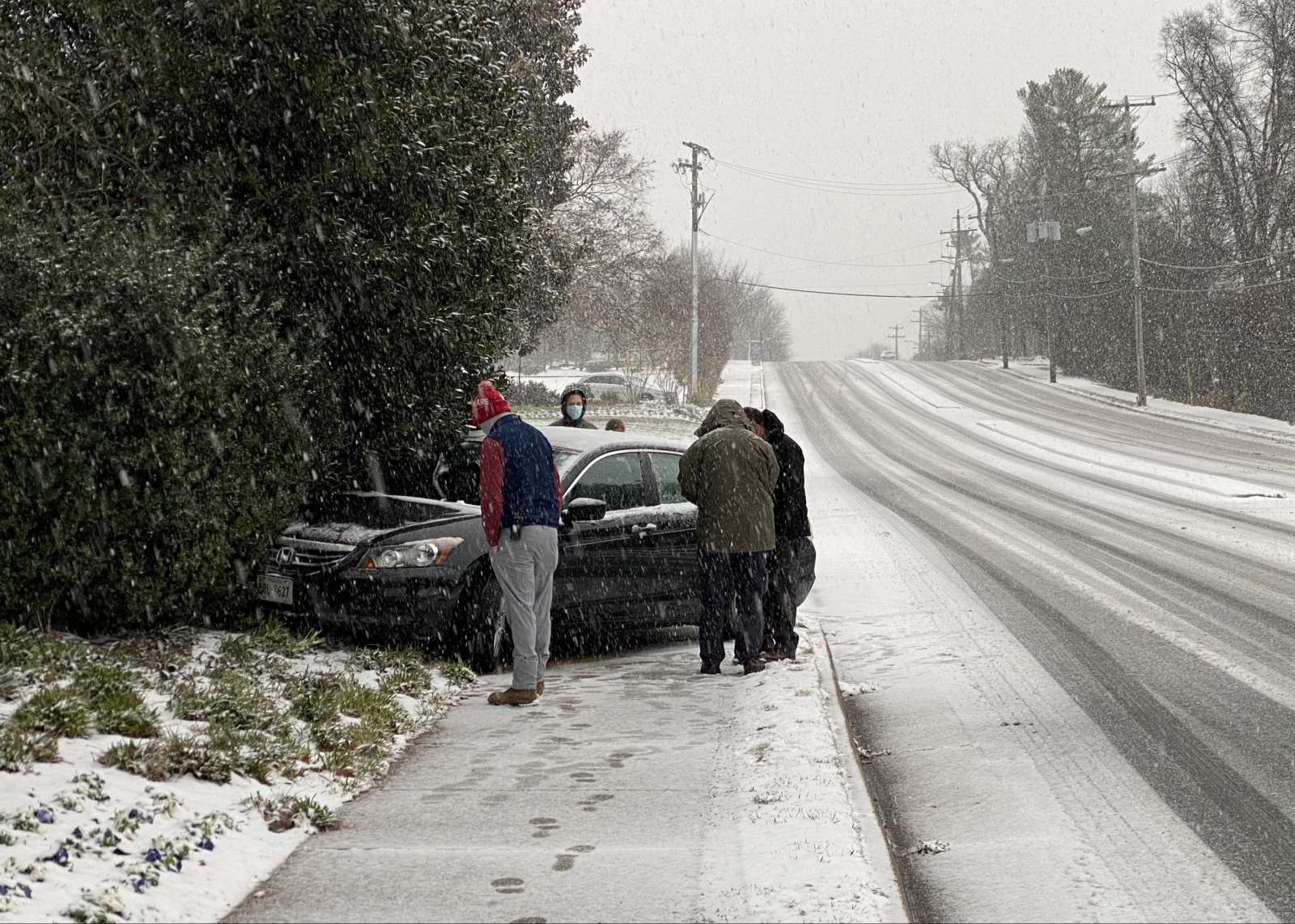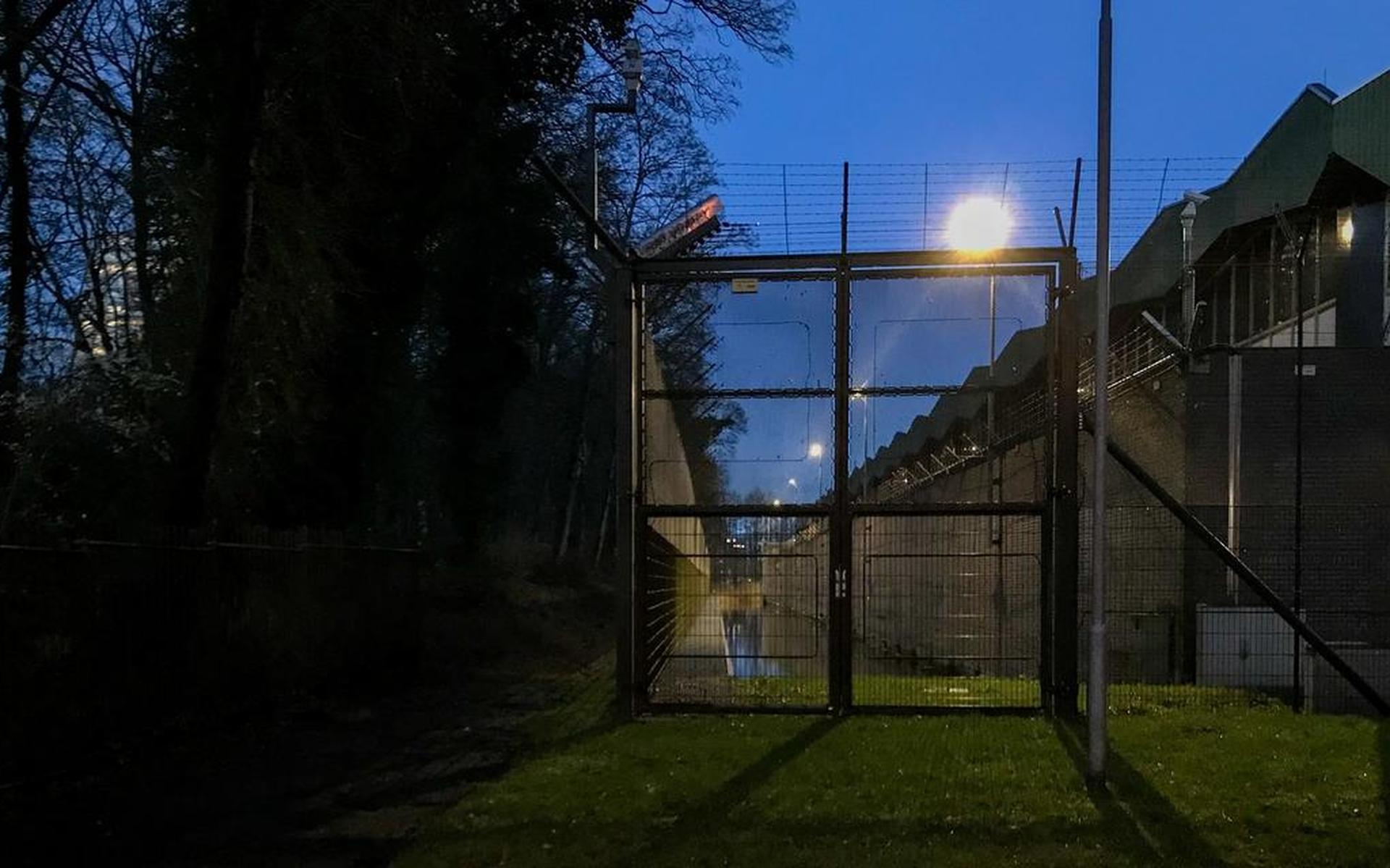Rising Homelessness In Tulsa: Insights From The Tulsa Day Center

Table of Contents
Factors Contributing to Rising Homelessness in Tulsa
The causes of homelessness in Tulsa are complex and interconnected, but several key factors consistently emerge. The Tulsa Day Center, working on the front lines of this crisis, observes these factors daily in the lives of those they serve.
-
Economic Hardship: Rising costs of living, stagnant wages, and a lack of affordable housing in Tulsa are primary drivers pushing individuals and families into homelessness. The Tulsa Day Center frequently sees a direct correlation between job loss, unexpected medical expenses, or even a sudden rent increase and the onset of homelessness. Many individuals are just one paycheck away from losing their housing. The widening gap between income and the cost of living, especially in rent and utilities, is a significant contributor to this trend.
-
Lack of Affordable Housing: A severe shortage of affordable housing units in Tulsa exacerbates the problem. Rent increases significantly outpace wage growth, leaving many low-income individuals and families struggling to afford safe and stable housing. This lack of affordable housing options forces many into precarious living situations, often leading to homelessness. The Tulsa Day Center regularly receives individuals who have been evicted due to inability to pay rent, highlighting the severity of this issue.
-
Mental Health and Substance Abuse: Many experiencing homelessness in Tulsa struggle with mental health issues and/or substance abuse. These challenges create significant barriers to securing stable housing and employment. The stigma associated with mental illness and addiction can further isolate individuals and prevent them from accessing the support they need. The Tulsa Day Center provides referrals to mental health and addiction services, recognizing the crucial role of addressing these co-occurring conditions in ending homelessness.
-
Domestic Violence: Escape from abusive situations often leaves individuals without a safe and stable place to live. Domestic violence survivors frequently find themselves homeless, highlighting the need for safe housing options and comprehensive support services specifically tailored to their needs. The Tulsa Day Center provides a safe haven and connects survivors with resources, such as shelters and legal aid, to help them rebuild their lives.
Services Provided by the Tulsa Day Center
The Tulsa Day Center plays a crucial role in addressing the needs of Tulsa's homeless population, offering a wide range of vital services:
-
Emergency Shelter: Provides a safe place to sleep, rest, and escape the elements. This is a lifeline for many who are experiencing unsheltered homelessness.
-
Food and Meals: Offers daily nutritious meals to combat hunger, a fundamental need for those struggling with homelessness. Regular access to food is essential for health and well-being.
-
Case Management: Connects individuals with resources for housing, employment, healthcare, and other essential services. Case managers work one-on-one with clients to develop personalized plans to help them achieve their goals.
-
Job Training and Placement: Assists individuals in finding and maintaining employment, providing crucial skills and support for long-term stability. Job training programs are vital for breaking the cycle of homelessness.
-
Healthcare Access: Facilitates access to medical and mental health services, addressing critical health needs often overlooked by those experiencing homelessness.
The Impact of Rising Homelessness on Tulsa
The rising rate of homelessness in Tulsa has a significant impact on the entire community:
-
Increased Strain on Social Services: Rising homelessness places an increasing burden on city resources, including emergency services, hospitals, and jails. These services experience increased demand and financial strain as a result.
-
Public Health Concerns: Homelessness increases the risk of infectious diseases and other health problems, impacting the overall public health of the city. Lack of access to hygiene facilities and healthcare contributes to this risk.
-
Increased Crime Rates: While causality is complex, a correlation exists between homelessness and crime, affecting community safety and perceptions. Addressing underlying issues contributing to both homelessness and crime is essential.
-
Economic Impact: Homelessness negatively impacts local businesses and reduces overall community well-being, affecting the city's economic prosperity.
Addressing the Crisis: Solutions and Initiatives
Combating the rise in homelessness in Tulsa requires a multi-pronged approach:
-
Increased Funding for Affordable Housing: Investing in the development of affordable housing units is crucial to providing stable housing for those in need. This needs to be a prioritized investment from both public and private sectors.
-
Expansion of Support Services: Increasing access to mental health, substance abuse treatment, and job training programs is essential to address the root causes of homelessness.
-
Community Partnerships: Strengthening collaboration between government agencies, non-profit organizations (like the Tulsa Day Center), and the private sector is critical for effective resource allocation and program implementation.
-
Homeless Prevention Programs: Early intervention programs to help those at risk of becoming homeless are crucial for preventing the crisis from worsening. These programs can offer assistance before individuals reach a point of crisis.
Conclusion
The rising homelessness in Tulsa is a multifaceted issue with far-reaching consequences. The Tulsa Day Center provides invaluable support, but addressing the root causes requires a comprehensive, community-wide effort. Increased investment in affordable housing in Tulsa, expanded support services, and stronger community partnerships are essential to mitigating this crisis and creating a more just and equitable Tulsa for all. Learn more about how you can support the Tulsa Day Center and help combat rising homelessness in Tulsa by visiting their website or donating today. Let's work together to find lasting solutions to Tulsa homelessness.

Featured Posts
-
 Tulsa Pre Treats Roads Ahead Of Midnight Sleet And Snow Storm
May 02, 2025
Tulsa Pre Treats Roads Ahead Of Midnight Sleet And Snow Storm
May 02, 2025 -
 Malek F Steekt Patient Neer In Van Mesdagkliniek Groningen Details Over Het Incident
May 02, 2025
Malek F Steekt Patient Neer In Van Mesdagkliniek Groningen Details Over Het Incident
May 02, 2025 -
 Channel Swim Challenge Graeme Sounesss Commitment To Isla
May 02, 2025
Channel Swim Challenge Graeme Sounesss Commitment To Isla
May 02, 2025 -
 Manchester United Pays Tribute To Poppy Atkinson 10 Killed In Kendal Pitch Accident
May 02, 2025
Manchester United Pays Tribute To Poppy Atkinson 10 Killed In Kendal Pitch Accident
May 02, 2025 -
 Tulsa Storm Warning Highest Severe Weather Risk After 2 Am
May 02, 2025
Tulsa Storm Warning Highest Severe Weather Risk After 2 Am
May 02, 2025
